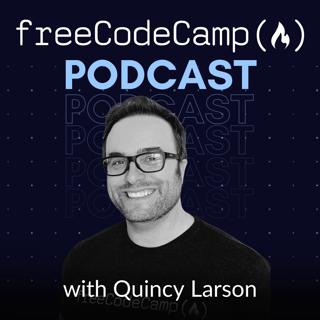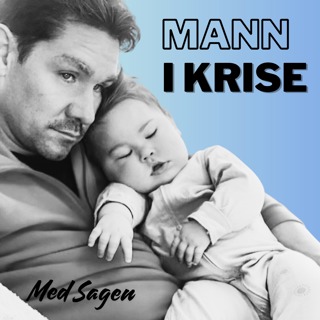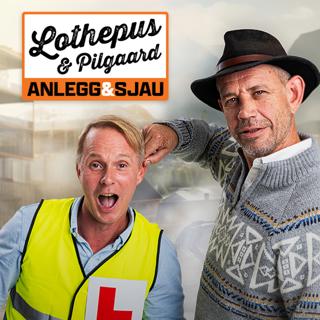
#161 How to go full-on Renaissance Man mode in 2025 with Vaughn Gene
On this week's episode of the podcast, freeCodeCamp founder Quincy Larson interviews Vaughn Gene. He's a self-taught software engineer who works with lots of freelance clients. Vaughn lived in Japan for 10 years, and speaks Japanese, speaks Spanish, plays guitar, plays piano, and is skilled at MMA. He's obsessed with learning new skills. We talk about: - How Vaughn struggled with high school and joined the Navy - How he learned Japanese so he could work as a personal trainer in Japan - How he learned coding using freeCodeCamp as a way to make more time and more money - His pragmatic approach for teaching himself new skills for free Support for this podcast comes from a grant from Wix Studio. Wix Studio provides developers tools to rapidly build websites with everything out-of-the-box, then extend, replace, and break boundaries with code. Learn more at https://wixstudio.com. Support also comes from the 11,043 kind folks who support freeCodeCamp through a monthly donation. Join these kind folks and help our mission by going to https://www.freecodecamp.org/donate Links we talk about during our conversation: - Vaughn's YouTube channel and his approach to pursuing multiple skills in tandem: https://www.youtube.com/watch?v=wTnsjmsgJS8 - Vaughn on Instagram where he posts guitar: https://www.instagram.com/vaughngene/
21 Feb 2h 11min

#160 She taught herself coding in her 30s for zero dollars
On this week's episode of the podcast, freeCodeCamp founder Quincy Larson interviews Julia Undeutsch who is a self-taught software engineer and accessibility specialist. She works at a big European company making software more accessible for people with disabilities. She taught herself to code in her 30s using freeCodeCamp. Support for this podcast comes from a grant from Wix Studio. Wix Studio provides developers tools to rapidly build websites with everything out-of-the-box, then extend, replace, and break boundaries with code. Learn more at https://wixstudio.com. Support also comes from the 11,043 kind folks who support freeCodeCamp through a monthly donation. Join these kind folks and help our mission by going to https://www.freecodecamp.org/donate We talk about: - Julia's coding journey from poker dealer to self-taught software engineer - How she creates tutorials in Japanese - Her passion for making software easier to use for everyone - Working remotely at a big European software consultancy Links we talk about during our conversation: - Julia's website: https://www.juliaundeutsch.com/ - Movie trailer for the 1999 Clive Owen movie "Croupier" that Quincy mentions: https://www.youtube.com/watch?v=LDWzeq5QGiA
15 Feb 1h 8min

#159 From freeCodeCamp to CTO with Robotics Engineer Peggy Wang
On this week's episode of the podcast, freeCodeCamp founder Quincy Larson interviews Peggy Wang. She used freeCodeCamp to learn coding. She then worked in Big Tech as a robotics engineer. And now she's cofounder and CTO of Ego AI, a Y-Combinator-backed startup that builds human-like agents for video games. We talk about: - How she grew up a first generation American and public school kid in Milwaukee - How her love of robotics helped her get into Stanford - How freeCodeCamp served as a key resource to build her developer chops - The near future of humanoid robots, self-driving cars, and human-like AI agents in games Support for this podcast comes from a grant from Wix Studio. Wix Studio provides developers tools to rapidly build websites with everything out-of-the-box, then extend, replace, and break boundaries with code. Learn more at https://wixstudio.com. Support also comes from the 11,224 kind folks who support freeCodeCamp through a monthly donation. Join these kind folks and help our mission by going to https://www.freecodecamp.org/donate Links we talk about during our conversation: - Peggy's GameDev company, Ego AI: https://www.egoai.com/ - Quincy's interview with hardware engineer Bruno Haid that he mentions toward the end of this episode: https://www.freecodecamp.org/news/podcast-hardware-engineering-bruno-haid/
7 Feb 2h 2min

#158 From Gas Station to Google with Self-Taught Cloud Engineer Rishab Kumar
On this week's episode of the podcast, freeCodeCamp founder Quincy Larson interviews Rishab Kumar, cloud engineer and developer advocate at Twillio. Rishab grew up in India and moved to Canada for school. But he couldn't afford to finish. He resorted to delivering pizzas and working at a gas station. But he worked hard to teach himself how to code and how to build cloud infrastructure, and eventually got a job Google. Support for this podcast comes from a grant from Wix Studio. Wix Studio provides developers tools to rapidly build websites with everything out-of-the-box, then extend, replace, and break boundaries with code. Learn more at https://wixstudio.com. Support also comes from the 11,043 kind folks who support freeCodeCamp through a monthly donation. Join these kind folks and help our mission by going to https://www.freecodecamp.org/donate We talk about: - How to teach yourself cloud engineering - Getting repeatedly rejected from FAANG jobs but persisting - Filling up the Infinity Gauntlet with cloud certifications - How DevOps and Cloud Engineering are changing Links we talk about during our conversation: - Rishab's Terraform course on freeCodeCamp: https://www.freecodecamp.org/news/how-to-use-terraform-to-deploy-a-site-on-google-cloud-platform/ - Rishab's LangChain LLM deployment course on freeCodeCamp: https://www.freecodecamp.org/news/learn-langchain-for-llm-development/ - Learn to Cloud guide by Rishab and his friend at Microsoft, Gwyn: https://learntocloud.guide/ - Rishab's YouTube channel https://www.youtube.com/@rishabincloud/videos
31 Jan 1h 25min

#157 Getting a developer job in 2025 with Lane Wagner
On this week's episode of the podcast, freeCodeCamp founder Quincy Larson interviews Lane Wagner. He's a software engineer, prolific contributor to freeCodeCamp, and founder of the Boot.dev online learning platform. Support for this podcast comes from a grant from Wix Studio. Wix Studio provides developers tools to rapidly build websites with everything out-of-the-box, then extend, replace, and break boundaries with code. Learn more at https://wixstudio.com. Support also comes from the 11,043 kind folks who support freeCodeCamp through a monthly donation. Join these kind folks and help our mission by going to https://www.freecodecamp.org/donate We talk about: - Lane's thoughts on college and computer science degrees - Back end development and why it resonnates with him - Why he's so enthusiastic about the Go Programming Language - What Lane's learned about how people learn Quincy mentions the number of engineers graduating every year from Indian and Chinese universities (including computer science majors, which is usually the most popular engineering degree). It's hard to find exact numbers but... - India: more than 1 million engineering graduates / year - China: more than 1 million engineering graduates / year - US: only about 200,000 engineering graduates / year Links we talk about during our conversation: - Lane's 4-hour course on how to get a job as a developer: https://www.freecodecamp.org/news/how-to-get-a-developer-job/ - Lane's 5-hour HTTP Networking course: https://www.freecodecamp.org/news/http-networking-protocol-course/ - Lane's SQL for Web Developers course: https://www.freecodecamp.org/news/sql-for-web-devs/ - Lane's freely available books published through freeCodeCamp Press: https://www.freecodecamp.org/news/author/wagslane/ - Khan Academy founder's talk on mastery learning: https://www.youtube.com/watch?v=-MTRxRO5SRA - The Zone of Proxmial Development education concept: https://en.wikipedia.org/wiki/Zone_of_proximal_development
25 Jan 2h 26min

#156 AI Reality VS Speculation with Google Machine Learning Engineer Jiquan Ngiam
On this week's episode of the podcast, freeCodeCamp founder Quincy Larson interviews Jiquan Ngiam. He's a former Google Brain engineer who's building tools to make AI useful for everyone – not just developers. We talk about the power of AI and it's practical capabilities, and separate those from a lot of the hype surrounding the AI space. Support for this podcast comes from a grant from Wix Studio. Wix Studio provides developers tools to rapidly build websites with everything out-of-the-box, then extend, replace, and break boundaries with code. Learn more at wixstudio.com. Support also comes from the 11,113 kind folks who support freeCodeCamp through a monthly donation. Join these kind folks and help our mission by going to https://www.freecodecamp.org/donate We talk about: - How AI agents work - Where AI is going and its limitations - How non-developers can leverage AI - And how developers can REALLY leverage AI Can you guess what song I'm playing in the intro? Links we talk about during our conversation: - Jiquan's company, Lutra AI: https://lutra.ai/ - Jiquan's article on generative agentic interfaces for working with large spreadsheets: https://blog.lutra.ai/generative-interfaces-for-ai-agents - Jiquan's article on OODA loops for AI Agents: https://blog.lutra.ai/ooda-loops-for-ai-agents - A paper Jiquan mentions, Executable Code Actions Elicit Better LLM Agents: https://arxiv.org/abs/2402.01030
17 Jan 1h 53min

#155 CUDA and GPU Programming with Elliot Arledge
On this week's episode of the podcast, freeCodeCamp founder Quincy Larson interviews Elliot Arledge. He's a 20-year old computer science student who's created several popular freeCodeCamp courses on LLMs, the Mojo programming language, and GPU programming with CUDA. He joins us from Edmonton, Alberta, Canada. We talk about: - Building AI systems from scratch - How Elliot has learned so much so quickly and his methods - How he approaches reading academic papers - His CS degree coursework VS his self-directed learning In the intro I play the 1988 Double Dragon II game soundtrack song "Into the Turf" Support for this podcast comes from a grant from Wix Studio. Wix Studio provides developers tools to rapidly build websites with everything out-of-the-box, then extend, replace, and break boundaries with code. Learn more at https://wixstudio.com. Support also comes from the 11,043 kind folks who support freeCodeCamp through a monthly donation. Join these kind folks and help our mission by going to https://www.freecodecamp.org/donate Links we talk about during our conversation: - Elliot's Mojo course on freeCodeCamp: https://www.freecodecamp.org/news/new-mojo-programming-language-for-ai-developers/ - Elliot's Cuda GPU programming course on freeCodeCamp: https://www.freecodecamp.org/news/learn-cuda-programming/ - Elliot's Python course on building an LLM from scratch: https://www.freecodecamp.org/news/how-to-build-a-large-language-model-from-scratch-using-python/ - Elliot's YouTube channel: https://www.youtube.com/@elliotarledge - Elliot's many projects on GitHub: https://github.com/Infatoshi
10 Jan 1h 19min

#154 Why developers needn't fear CSS – with the King of CSS himself Kevin Powell
Take our year-end freeCodeCamp podcast listener survey real quick: https://forms.gle/2M9NW776723uSdDT7 On this week's episode of the podcast, freeCodeCamp founder Quincy Larson interviews Kevin Powell. He's a designer, a software engineer, and an expert in CSS. He's runs a CSS-focused YouTube channel with nearly a million subscribers. There's nothing sensational there – he literally just teaches people CSS. Support for this podcast comes from a grant from Wix Studio. Wix Studio provides developers tools to rapidly build websites with everything out-of-the-box, then extend, replace, and break boundaries with code. Learn more at https://wixstudio.com. Support also comes from the 11,043 kind folks who support freeCodeCamp through a monthly donation. Join these kind folks and help our mission by going to https://www.freecodecamp.org/donate CORRECTION: I (Quincy) say during the interview that the Uber found a way to access microphones on iOS without users' knowledge. There have been documented cases of malware doing this (like Pegasus) but Uber didn't do this. They did do a lot of other shady things, like continue collecting data even after you deleted their app – but mic spying was not one of them. Yes, early Uber was an ethical tire fire. But it's important to get facts right here. We talk about: - Why you should still learn CSS in 2025 - How teaching concepts improves your own understanding of them - How learning to skateboard helped Kevin escape Tutorial Hell - Massive improvements coming to CSS Links we talk about during our conversation: - Kevin's YouTube channel: https://www.youtube.com/kevinpowell - Original Space Jam website Kevin mentions: https://www.spacejam.com/1996/ - The article that coined the term Responsive Design: https://alistapart.com/article/responsive-web-design/ - Kevin's freeCodeCamp article on how learning skateboarding helped him out of tutorial hell: https://www.freecodecamp.org/news/how-learning-to-skateboard-helped-me-find-a-way-out-of-tutorial-hell/ - Kevin's freeCodeCamp course on building and deploying a portfolio page: https://www.freecodecamp.org/news/how-to-build-a-portfolio-website-and-deploy-to-digital-ocean/ - Playable Minesweeper in CSS that Quincy mentions: https://codepen.io/bali_balo/pen/BLJONZ - Acknowledged mistakes that are permanently coded into CSS: https://wiki.csswg.org/ideas/mistakes - Talk on why is CSS so weird: https://www.youtube.com/watch?v=aHUtMbJw8iA
20 Des 20242h 4min





















